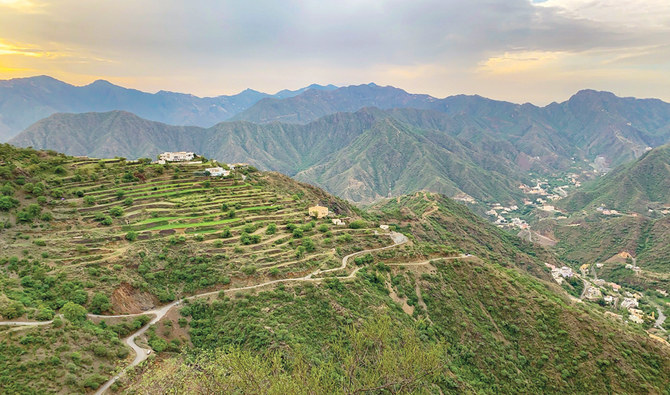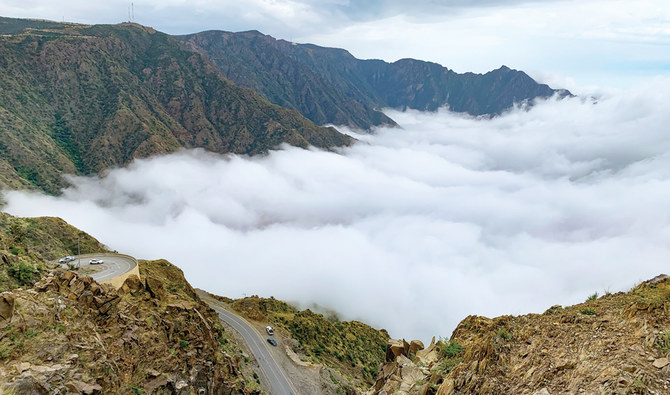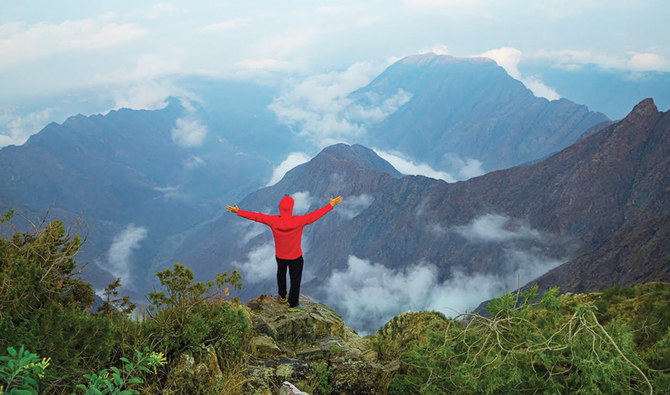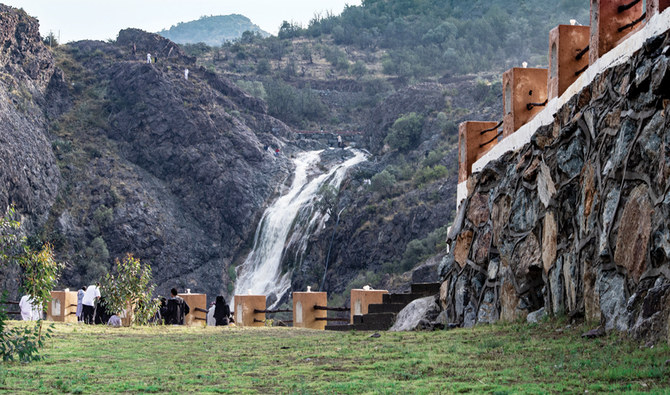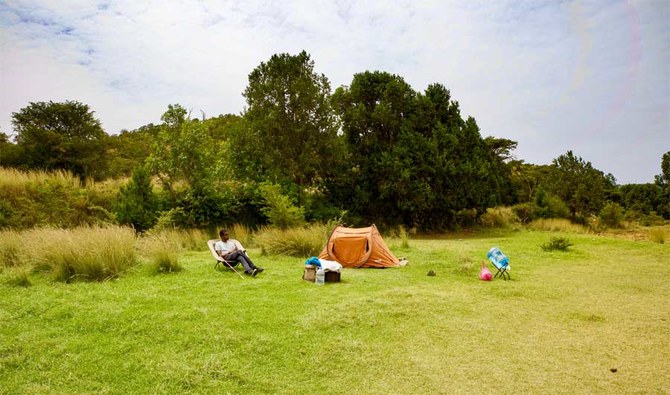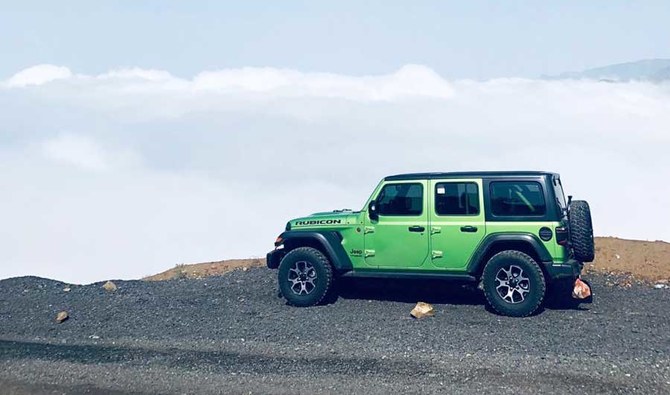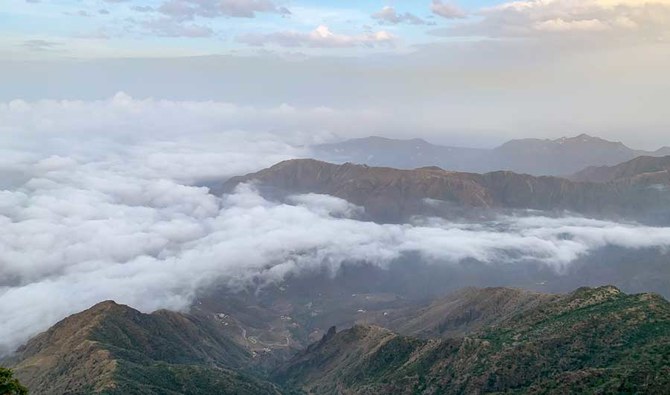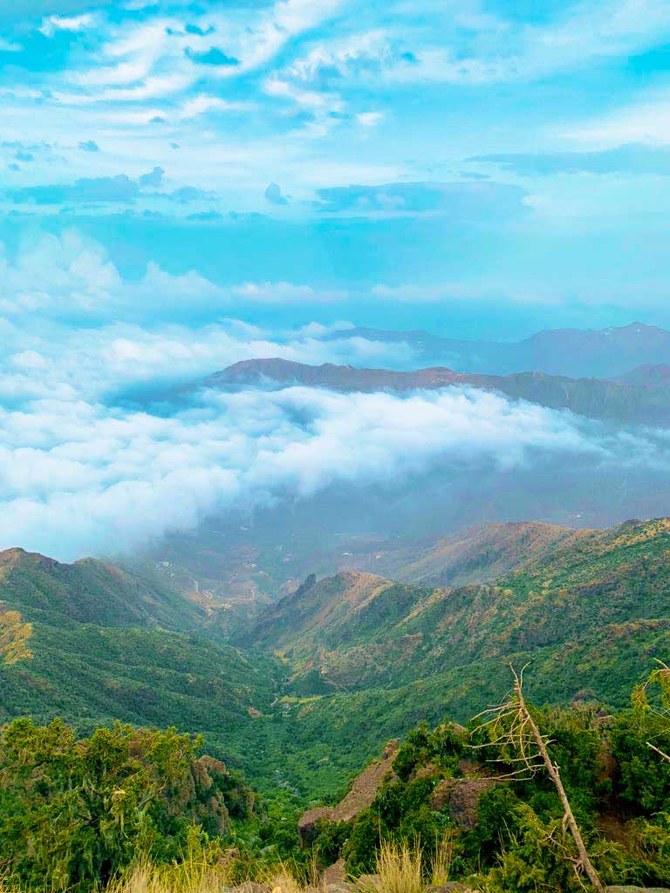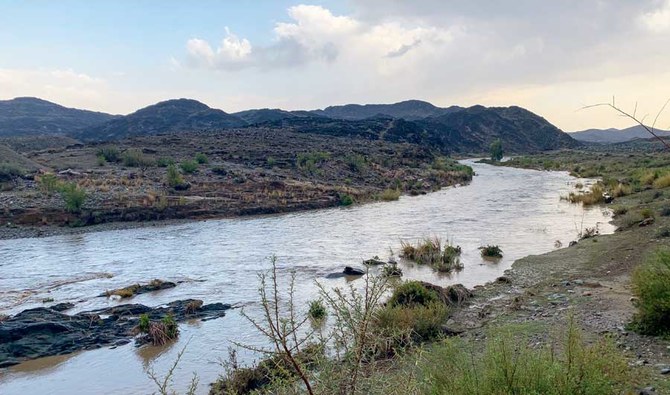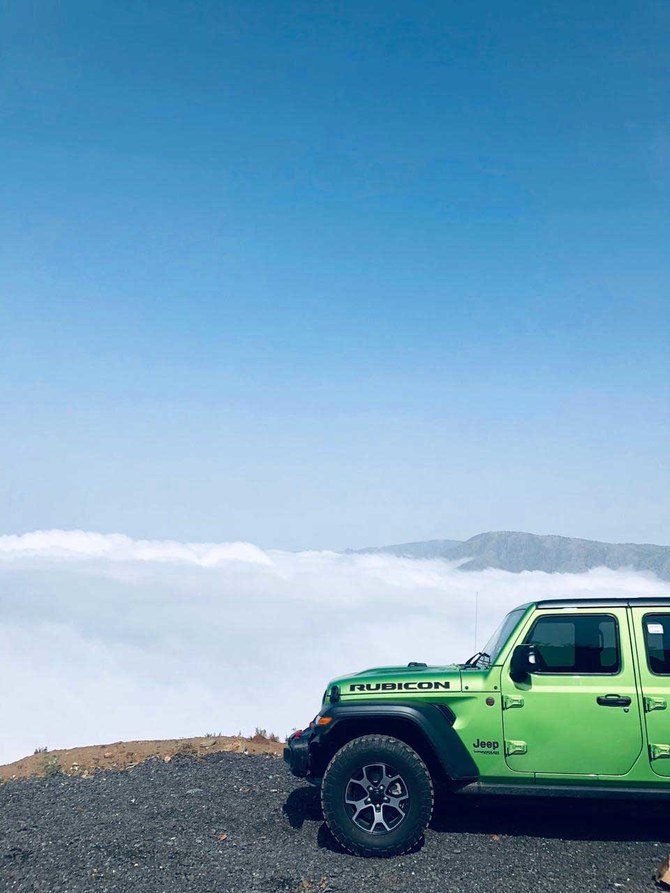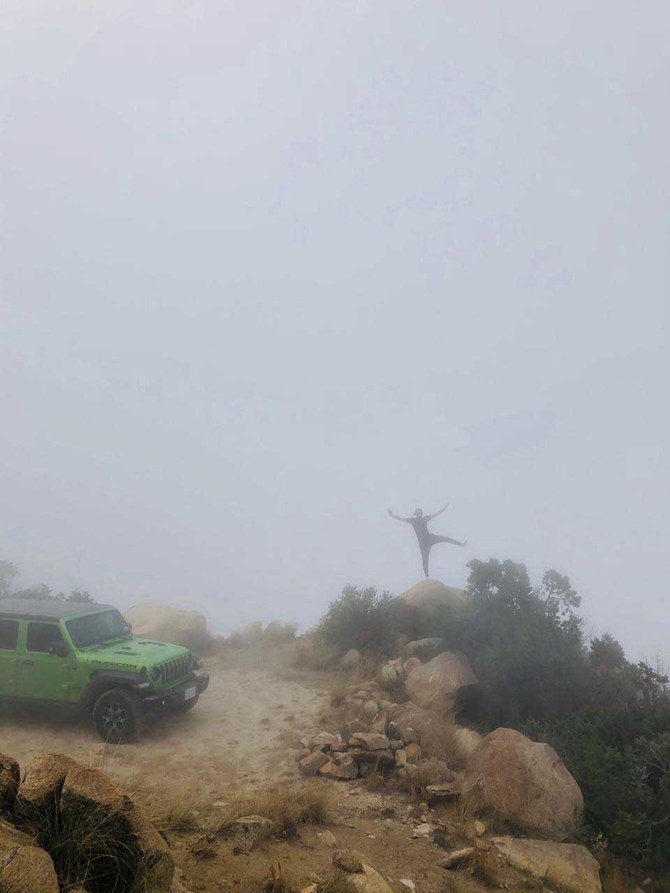JEDDAH: Saudi nationals are being encouraged to discover their country’s tourist destinations and natural beauty, as COVID-19 continues to disrupt international travel.
Domestic flights in the Kingdom resumed on May 30 and citizens have been beating the big cities’ summer heat by heading to cooler areas in the southwest, which is known for its lush green mountains and for being an ideal venue for camping and hiking.
Saudis shared their thoughts with Arab News about their first-ever camping experiences, describing it as “beyond expectation.”
Khalid Siddeeq, from Riyadh, was unused to spending four consecutive months in Saudi Arabia without traveling internationally or internally.
But, because of the COVID-19 pandemic and his technical work in the health field, Siddeeq had several months of arduous work before he was able to get two weeks off. It led him in search of a natural escape, away from crowds and scenes of modern life.
“It didn’t require much thought, I immediately decided to camp in the southern region,” he told Arab News.

Siddeeq had been putting off accepting friends’ repeated invitations to their hometowns in the south for years, until he was left with no choice.
“I was expecting to witness beautiful scenes and landscapes, but what I saw exceeded all of my expectations completely.”
During his 14-day journey Siddeeq visited Al-Souda Mountains, Bani Mazen in the Abha region, and Al-Habala and Tanumah in Asir.
“I loved camping in Al-Souda mountains and the villages of Bani Mazen. The first thing you will see when you wake up is the sight of clouds as far as the eye can see, as if you were dreaming. I also liked Al-Habala. It is a very vast and beautiful area, while Tanuma has many natural parks beyond anything I could imagine.”
The generosity of locals, their kindness, warm welcome, and the region’s diverse cuisine has caught visitors’ attention. The region is also blessed with good weather year-round and, with cool rainfall in the hot summer months, its beautiful green fields and mountains are a potent draw for hikers and campers.
I was expecting to witness beautiful scenes and landscapes, but what I saw exceeded all of my expectations completely.
Khalid Siddeeq
The region perfectly illustrates a common Arab saying: “Three things remove sadness from the heart: Water, greenery, and a beautiful face.”
Siddeeq’s advice for first-time campers was to be well-prepared for sudden weather changes, pack winter clothes even in the summer, buy a waterproof tent and make sure it was well set up.
“Moreover, you will see many monkeys,” he warned. “Do not leave your important things in the place, and walk away in anticipation of any potential raid by a troublesome monkey.”
He said that he would make a longer trip next time because 14 days were not enough, and that he would travel with an SUV to access more challenging terrains and off-the-beaten-track places.
Majed Alharbi, who is also from Riyadh, did not want to miss out on traveling with an SUV and took off for a quick two-day camping journey to escape the capital’s scorching conditions.

“It’s a long-awaited plan,” he told Arab News. “I’ve always wanted to visit the (southern) region, but I used to prefer traveling abroad over domestic tourism. However, as the flight suspension coincided with the hottest time of the year in Riyadh, I chose the southern region because of its good weather and its proximity compared to other options. The biggest plus is the weather. For someone like me, coming from Riyadh’s heat, it was incredible.”
He was surprised by Abha city’s traffic congestion and crowded parks, as well as Al-Souda, so decided to avoid the big cities and instead ventured out into the villages to explore.
“That pushed me to visit less popular places and reach more interesting quiet areas with virgin nature, which was honestly amazing. Although I was not well equipped with all I needed for camping, the experience was still fun.”
Al-Harbi headed to Al-Namas and visited towns such as Ballasmar, Ballahmar, and Tanumah. He found good camping spots away from the city and crowded areas.
“What I liked the most were Ballasmar and Tanumah. I loved the virgin nature, where there was no human intervention of any kind, that is why I love camping in the first place. I’ll definitely revisit the region to discover it further, but I’ll make sure to be fully equipped with everything I need.”
One of the downsides with newly discovered areas of interest is crowds who can leave waste behind. Siddeeq suggested that municipalities distribute bigger trash containers and give out garbage bags to visitors. “This may encourage everyone to maintain cleanness and leave the place better than it was.”
Al-Harbi had another solution. “It would be great if authorities designated specific protected areas for campers for a nominal cost, where they can find what they need while enjoying virgin nature. I wouldn’t mind paying a nominal cost to enter an area that is vast enough for a complete camping experience that is safe, clean, with stations where we can find toilets, showers, equipment, and food.” He also said that such services would encourage more people to try these activities. Wild camping is a special experience that comes with risks. Campers might encounter wild animals such as hyenas and snakes as these are quite common in the region.
Al-Harbi said he faced no problem even in the most isolated and rugged places he reached. But Siddeeq, on the other hand, used a stick to lightly hit the rocks to check for dangerous animals.
“It is known that the mountainous regions in the south are considered fertile environments for many snakes. However, and because my visit to the Asir region coincided with the first 10 days of the Hajj month (early August), there were daily rains in most villages and mountains of Asir. The abundance of water makes harmful animals — especially snakes — move away and not approach humans, which helped me a lot.”
He added that Saudi Arabia had great treasures that deserved to be discovered. “We may have been a little preoccupied with the outside world, but domestic tourism deserves our attention.”
Al-Harbi said that an official camping guide for Saudi Arabia would help many people who wished to enjoy such an experience but lacked proper information and guidance.
Abdullah Shannan, a 33-year-old teacher and Al-Baha native, said the number of visitors to the region had increased tremendously.
“What makes Al-Baha different is how large the area is, allowing more room for campers to search and discover new places,” he told Arab News. “There are valleys and forests that are very easily accessible by car unlike other southern areas.”
He recommended that visitors explore other lesser-known areas where there was likely to be more scope for privacy, as authorities had designated entry and exit times for certain camping grounds such as the one in Prince Mishari Park and others.
“They did this in order to provide campers with more privacy and (ensure) less noise in the area,” he said.


